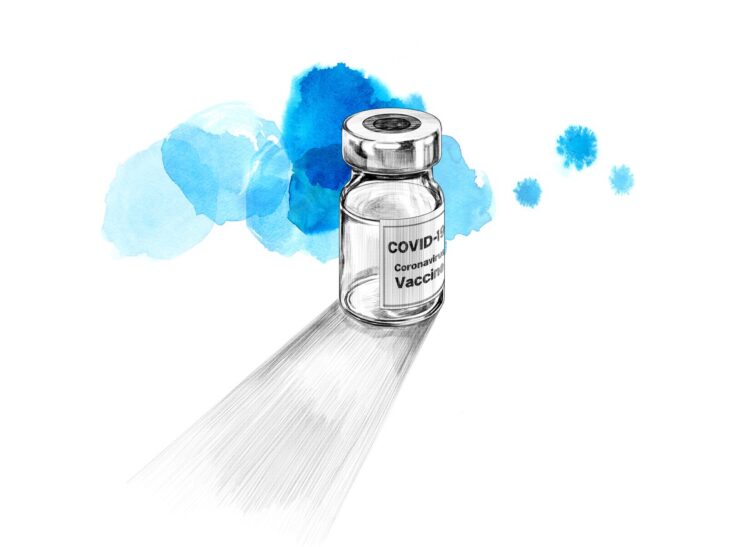By Stephanie Schorow for the Global Mass Vaccination Site Collaborative
Oct. 8, 2021
The push to vaccinate the world against COVID-19 is just the latest wrinkle in the global effort to bring the pandemic to an end. Since 2013, the initiative now known as Boost (formerly called the International Association of Immunization Managers) run by the Sabin Vaccine Institute, has been working to empower immunization professionals in their careers and their communities and is now adapting its learnings for this latest pandemic.
What was particularly striking to members of Ariadne Labs’ Global Mass Vaccination Site Collaborative, who heard a presentation by Boost during the collaborative’s Oct. 8, 2021, meeting, was how Boost aimed to empower immunization professionals to play key roles in their community’s public health.
“People are searching for ways to do things differently and more effectively,” said Yvonne Akukwe, MPH, Boost Manager of Global Learning and Engagement.
In April 2021 Ariadne Labs launched a vaccination collaborative to facilitate a rapid information exchange about the delivery of COVID-19 vaccinations. The collaboration included public and private organizations such as hospitals, health-care systems, health departments, and non governmental. The collaboration meets weekly to discuss a range of issues related to vaccine delivery, from setting up vaccination sites on racetracks and football stadiums, to building vaccine confidence, to the challenge of immunization efforts in India, Canada, Brazil, and Haiti.
Akukwe and Jennifer Fluder Siler, Sabin’s vice president of Global Community Engagement, met with the collaborative to introduce their organization and discuss global efforts to increase vaccine uptake.
“Our mission is to foster a global community that enables immunization professionals to connect with peers and experts, learn skills that build capacity and advance careers and lead immunization programs in challenging contexts,” Siler said.
Boost made a targeted pivot in 2019 from a focus on national immunization staff in high- and low-income countries to a focus on national and sub-national immunization staff in low- and middle income countries, as its teams confronted huge problems with isolation among immunization professionals responsible for thousands of doses for a variety of conditions. Boost saw that lines between immunizers and public health were blurring, and there was a need to establish immunization as a career track. They “found burnout and fatigue and no particular support on the ministry of health side; people will go months without getting paid and stay dedicated,” Siler said.
The initiative created and now nurtures a space where people can learn not only technical skills but also skills in leadership, advocacy, and community organizing. The platform provides curated resources, tools and access to webinars. Public and private learning groups bring together like-minded professionals. Currently the organization has about 1,780 active profiles in 132 countries.
To promote empowerment, Boost offers online courses in Adaptive Leadership, including an introduction class on the concept and a six-week intensive course on “Boost Scholar Course: Adaptive Leadership for Immunization.” “It changed the mindset of what it means to be a leader and how to lead in the future,” Akukwe said.
Other courses zero in on foundational capacity building — the focus is not on traditional advocacy, which usually involves well-trained experts speaking on behalf of people in need, but on community organizing, which develops and builds the cooperative power of the community itself to address challenges.
Another Boost course is “Storytelling for Change,” a self-paced course that provides an opportunity for members to learn new skills to generate public emotion, value and action on a social issue.
Two months after the organization relaunched as Boost, the COVID-19 pandemic hit, pushing Boost to adopt a more bottom-up and not top-down approach and underscoring the need for community engagement. As part of its COVID-19 Vaccine Equity Project, Boost launched the COVID-19 Listening and Learning Series — a platform for immunization professionals as well as others involved in COVID-19 vaccine delivery to share their perspectives on vaccine introduction with particular emphasis on transferable lessons learned — the series includes a podcast to provide insights from the frontlines of COVID-19 vaccine site globally as well as feature experts to answer questions on the vaccines. Upcoming is a podcast with Right to Care on vaccine delivery learnings from their rollout in South Africa. “We are trying to source from around the world as many real-time learnings as we can,” Siler said.
“Boost’s leadership in the vaccination community in low- and middle-income countries prior to the pandemic significantly strengthened systems as they expanded to larger scale roll outs of COVID vaccinations. We are excited to partner with Boost during the next phase of our collaborative,” said Eric Goralnick, MD, MS, Associate Faculty, Ariadne Labs, and Principal Investigator of the Global Vaccination Site Collaborative.
Key Takeaways:
- Provide a platform for immunization professionals and other health professionals involved in vaccination efforts to share perspectives.
- Creating two-way conversations so that immunization staff can reach and support each other, and experts. Make sure immunization staff at all levels “feel heard.”
- When creating incentives for immunization, know your audience and proceed appropriately.
- Enhance equitable vaccine delivery by identifying areas that would benefit from additional country-level support.
- Utilize adaptive leadership and community building capacity building at all levels in the immunization system to move organizations, communities, and teams beyond the status quo.
- Utilize the power of narrative and storytelling to advocate for change.
The Global Mass Vaccination Site Collaborative was launched as a way for stakeholders directing vaccination campaigns around the world to come together and learn from each other’s efforts. This blog series was created to record and share the learning and insights gained from this collaboration. Read blogs from our previous meetings here.



